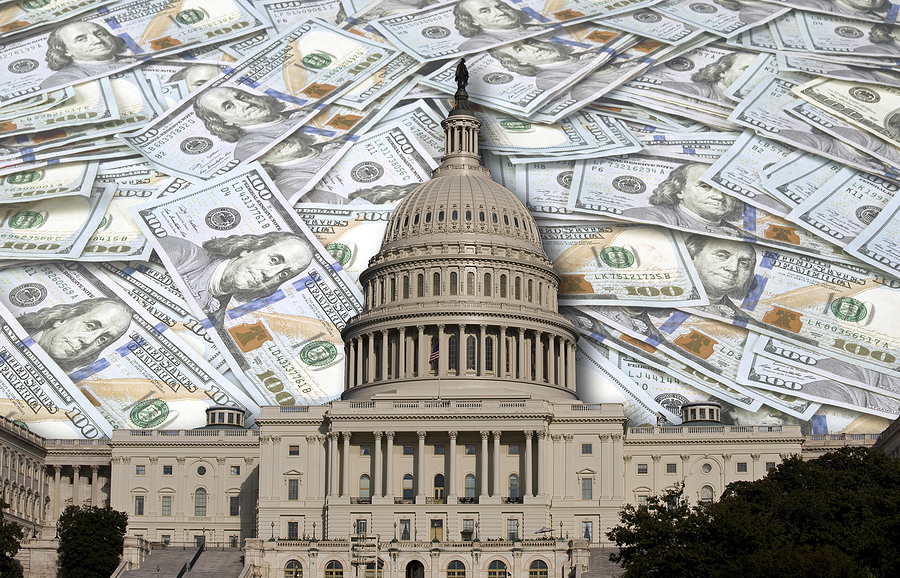Fiscal space is the flexibility to continue borrowing to support our deficits and debt. For now, the United States still has that flexibility. However, the day is fast approaching when that option will vanish. When it does, chaos will follow, problems beyond our imagination, problems that this country has never witnessed before.
Every advanced civilization has eventually failed. There are many reasons, but fiscal instability has often been at the core. Greece hit the wall not long ago. Fortunately for it, the European Union stepped in to prevent collapse. Even so, its standard of living today remains well below what it once was. In the United Kingdom and France, citizens face hefty taxes across the board, from pensions and income taxes to gas, cigarettes and liquor. And yet, those revenues still cannot cover massive government programs.
Politicians who propose cutting benefits face rebellion. The results are huge fiscal holes and no good options.
Germany and Italy are not far behind, and decades of statist policies have left much of Europe with anemic growth. Sadly, the United States is heading down the same road.
The truth is that the United States is insolvent. We cannot pay our obligations without enormous annual borrowing. In 2024, we issued $10 trillion in new debt, $8 trillion to cover maturing obligations and $2 trillion to cover deficits.
Our interest-bearing debt stands at $37 trillion, equivalent to 125 percent of our GDP. Add unfunded obligations, and the total exceeds $130 trillion. Multi-trillion-dollar deficits stretch endlessly into the future, and the debt-to-GDP ratio climbs higher annually. In 10 years, our interest-bearing debt will amount to $70 trillion, and annual interest payments will total $3 trillion. Meanwhile, the Social Security and Medicare trust funds are expected to be depleted within seven years.
Congress knows this. Everyone knows. And yet, we keep going. We are absolutely headed for eventual destruction if we stay on this path, just like Greece, France, and the United Kingdom. Here is what makes the United States different. We are not too big to fail. We are too big to save.
Why hasn’t there been a course correction? Because, to the public, everything still looks fine. Growth continues, albeit at a slower pace than before. The stock market is strong. We can still borrow. People look around and say, “Problems? What problems?” Warnings fall on deaf ears. Politicians find it easier to keep kicking the can down the road. Some say we should tax the rich, but everyone knows that will not come close to solving the problem.
Yes, the United States has faced high debt before. During World War II, our debt-to-GDP ratio exceeded 100 percent. After the war, limited government and responsible policies enabled two decades of strong economic growth. The debt ratio fell to under 40 percent. Today is different. We are already at 125 percent higher than WWII, and the trajectory is only upward. We are on an unsustainable path, just as the Treasury Department itself warns in its financial statements.
The needed fixes are politically impossible without public understanding and support. That is why the best solution is a statutory fiscal commission enacted by law. It must be bipartisan and bicameral, with representatives from both parties and both chambers of Congress. It must include independent experts, not just politicians. Its recommendations should require strong support from within the commission to move forward, but once adopted, they should automatically become law unless Congress explicitly votes to reject them. Most important, the commission must include a significant public education and engagement effort. Without it, even the best ideas will go nowhere.
That last element is the most important. Without public understanding and support, nothing will happen. Congress cannot adopt painful but necessary reforms if voters do not understand why they are essential. Americans must grasp the reality: fixing our fiscal mess is not optional. It is the only way to ensure our nation’s prosperity and stability.
The United States is not immune to the fate of other great nations. Fiscal recklessness has toppled empires and crippled democracies. If we do not act now, the same will happen here. Supporting a fiscal commission is not a partisan issue. It is about survival. It is about confronting reality before it confronts us. We still have time to change course, but that window is closing fast.
Our fiscal space is gone. What should we do? The answer is clear: establish a bipartisan, expert-driven commission to put us back on a sustainable path and educate the American people on the importance of this matter. If we fail, history will not be kind to us. If we succeed, we can preserve America’s strength and prosperity for generations to come.


